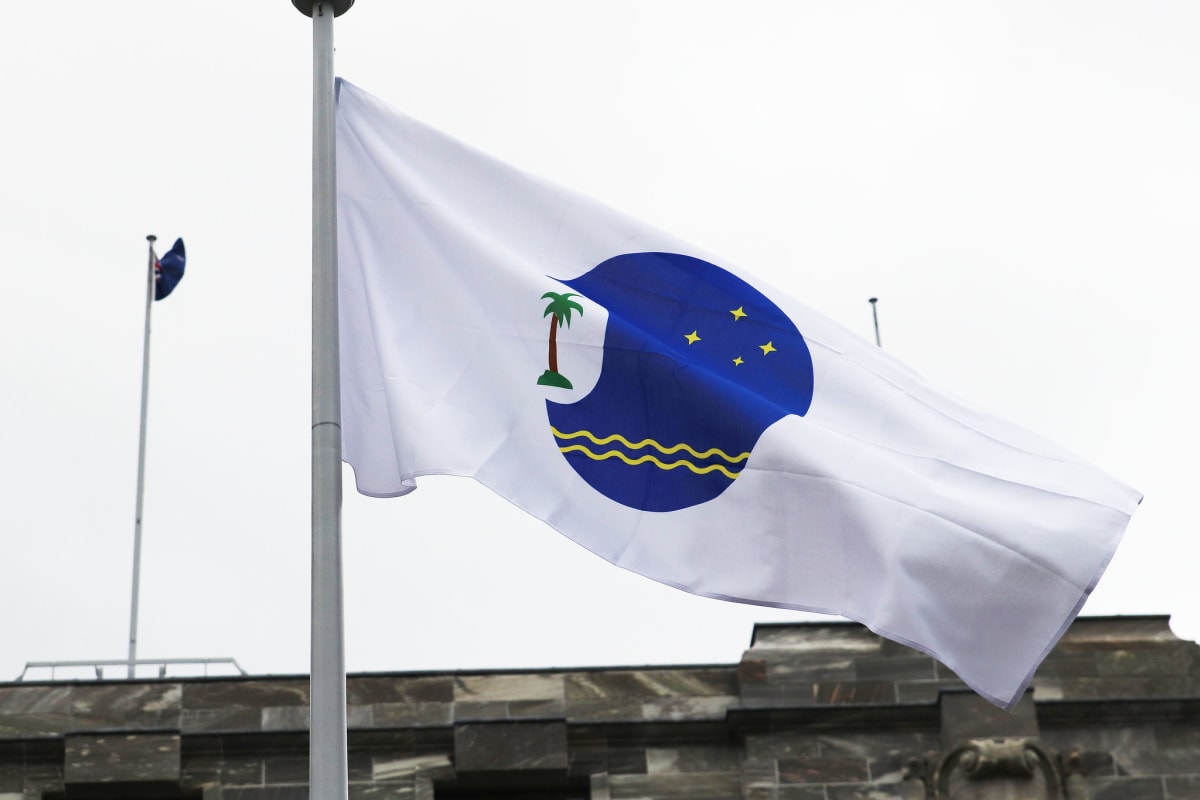
A last-minute deal appears to have saved the Pacific Islands Forum from breaking apart – but New Zealand and others will hope the truce holds in the coming months, Sam Sachdeva reports
The rumoured resignation of Henry Puna from the top job at the Pacific Islands Forum seems set to prevent Micronesian members from completing their threatened withdrawal from the group.
The news will ease concerns within New Zealand and elsewhere about a divided region – but some Pacific watchers have expressed concerns about the remaining obstacles still to be cleared.
Puna’s controversial selection last year as the forum’s next secretary-general led five Micronesian states to announce plans to withdraw from the 18-member forum.
Despite a number of efforts to prevent their withdrawal, the nations appeared set to follow through on their threat, with the Federated States of Micronesia expected to be the first to complete the 12-month withdrawal process this week.
However, after a virtual meeting of the Micronesian Presidents Summit, the country’s president David Panuelo announced on Saturday it and the other states had agreed to “temporarily rescind their withdrawal from the Pacific Islands Forum” until a number of reforms took place.
While there was little detail in the statement of exactly what those reforms would entail, Panuelo subsequently told the ABC that forum chair Fiji had promised Puna would step down as secretary-general in June and clear the way for a Micronesian to succeed him.
The Micronesian states were angered by the selection of the former Cook Islands prime minister last year, believing a gentlemen’s agreement meant it was the bloc’s turn to hold the role.
"That's one of the reforms, among others, and I think it's the most hardline [position] all of us had taken on as Micronesian leaders, because if the Pacific Islands Forum is to continue with credible unity, those reforms … have to be met," Panuelo told the ABC of Puna’s apparent departure.
“Arguably one could ask the question, whether or not Panuelo coming out publicly in the way that he did, did that show good faith and trust? There are certainly concerns that this is not Pacific diplomatic tradecraft as we understand it."
– Dr Anna Powles
Dr Anna Powles, a senior lecturer at Massey University’s Centre for Defence and Security Studies, told Newsroom the news had come as a relief to many Pacific experts concerned about a splintering of the forum.
Powles said Fiji and other key players had played a crucial role over the last year in facilitating “shuttle diplomacy” and behind the scenes conversations, while others had encouraged Micronesian states to stay within the forum by emphasising the importance of regional unity.
The news of the Micronesian about-face came as US Secretary of State Antony Blinken visited Fiji, with some suggesting in advance Blinken’s trip could further underline American support for a unified forum.
However, Dr Tess Newton Cain, the project lead for the Pacific Hub at the Australia-based Griffiths Asia Institute, said it was unclear how committed the US was to the future of the forum, citing a reference in the country’s newly released Indo-Pacific strategy to a new “multilateral strategic grouping that supports Pacific Island countries”.
“That … reinforces what I've always felt is an American ambivalence about the forum, and I think the reason for that is that they're not a member of the forum: they are a dialogue partner, which basically means that they sit at the same table as China and other people that they may feel they would rather not sit at the same table as,” Newton Cain said.
While Panuelo and Palau President Surangel Whipps Junior have spoken to the ABC about the “agreement” for Puna to step aside, neither the forum secretariat nor forum chair Fiji have confirmed the news.
Newton Cain said the “chaotic” nature of the announcement raised questions about how settled the secretary-general’s departure was, while Powles agreed the ad-hoc comments were a deviation from the norm in the Pacific.
“Arguably one could ask the question, whether or not Panuelo coming out publicly in the way that he did, did that show good faith and trust? There are certainly concerns that this is not Pacific diplomatic tradecraft as we understand it,” Powles said.

Newton Cain said the selection of a Micronesian secretary-general would be the “flagship item” for the bloc, but there would likely be discussions of broader reforms and support, including the number of Micronesians employed at the secretariat and whether a new office or regional organisation could be established in the North Pacific.
However, she warned the forum’s longevity could be put at risk if the Micronesian states proved unwilling to compromise in talks over broader reform.
“Having established that they can work together as a bloc … I think it's really important that they feel that they demonstrate that they've got more at stake, and that their ambitions are more than truly regional and not just about their little bloc.”
Another unanswered question is how Fiji Prime Minister Frank Bainimarama, the forum’s chair and a key figure in the Pacific, feels about the compromise and the demands of the Micronesian states; he has been absent from the public stage after undergoing heart surgery in Australia.
But New Zealand’s views are more easily discernible, with Powles noting the Government had made it clear the forum was at the heart of Pacific regionalism amidst concerns about greater strategic competition in the region from China and others.
“There has certainly been concern that a more splintered, more fractured Pacific Islands Forum and a more fractured and splintered Pacific could potentially enable other actors such as China or others to leverage those rifts.”
However, with the Micronesians’ withdrawal merely paused until June rather than rescinded entirely, and the Covid pandemic continuing to make face-to-face discussions difficult, Newton Cain said there was plenty of water to go under the bridge.
“There’s a lot of detail to be worked out, in not a lot of time.”






